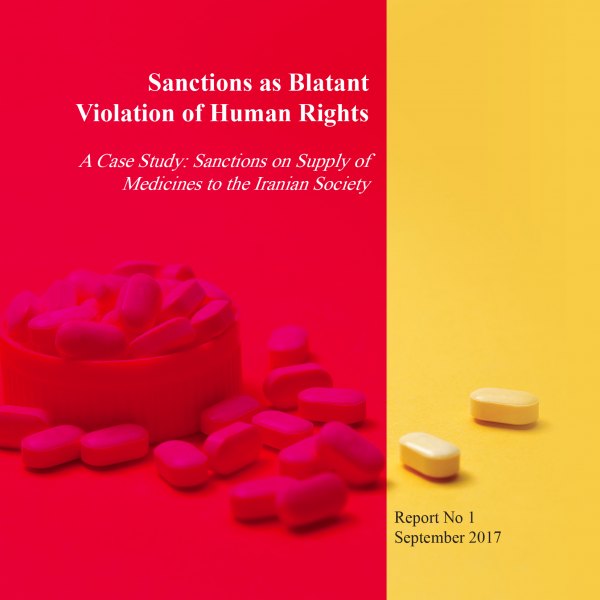
Sanctions as Blatant Violation of Human Rights
Sanctions as Blatant Violation of Human Rights
After Western sanctions against Iran – including international sanctions as well as unilateral sanctions by the United States and the European Union – were intensified on account of the Islamic Republic’s nuclear program, and when their scope was expanded to include banking and trade exchanges, especially from 2010 onward, there were many debates and discussions about “imposing sanctions on supply of medicines” to Iran and its impact on the life and health of Iranian citizens. At that time, many officials of the Islamic Republic talked about “sanctions imposed on supply of medicines” and the pressure they exerted on the Iranian people, declaring them as a clear proof to the “oppressive nature of sanctions.”
At the same time, Iranian nongovernmental organizations upped their criticism of human rights violation by the international community through imposing sanctions that could directly affect ordinary people in Iran.1 On the other hand, a popular campaign themed “popular protests to medicinal sanctions against Iran“ quickly swept through various social networks and Internet websites in 2012.1 In fact, Iranian citizens living all across the world were of the opinion that medicinal sanctions against Iran constituted a blatant case of human rights violation and used various means to slam the United Nations and other international human rights organizations for their silence in the face of this problem. A review of the bitter experience that Iranians have had in this regard can adequately alert human rights advocates and remind them of their duty to stand up against repetition of this bitter experience for any other nation. In this way, as long as unilateral Western sanctions against Iran over the country’s nuclear issue were in place, all the Iranian people were deprived of their right to “have access to essential medicines.” This human rights catastrophe has been consistently ignored by major political actors.
In this paper, an effort will be made to discuss inhumane effects of these sanctions on both patients and the process of production and distribution of medicines in Iran, so that, if similar sanctions were imposed on other countries, such human rights catastrophes could be prevented in early stages.

 Reload
Reload


